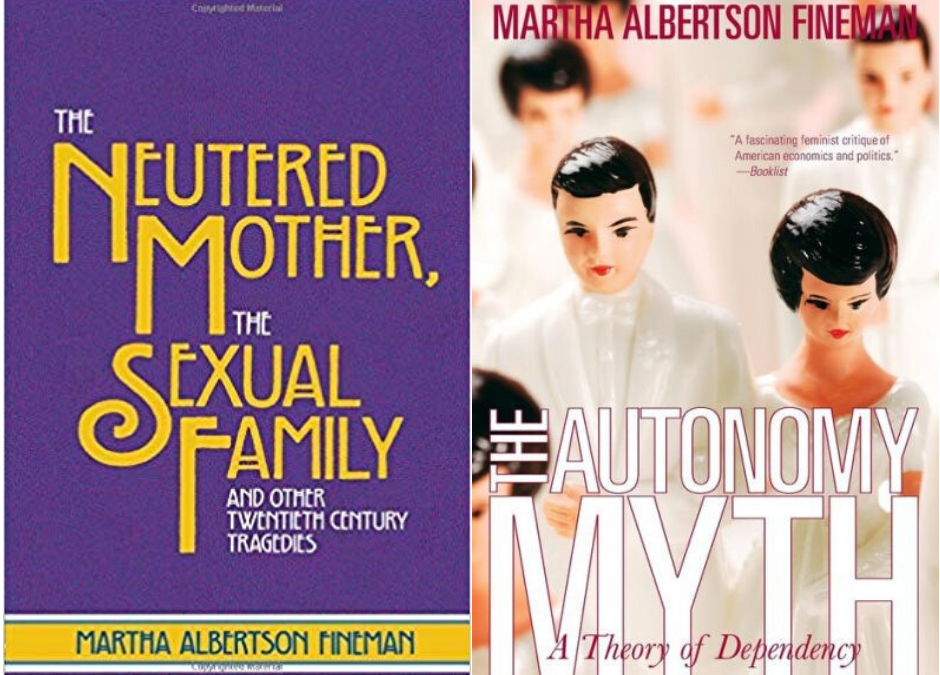
The deadline for proposal submissions has been extended to Monday, January 20, 2020.
We are pleased to announce a workshop commemorating the publication of one of Professor Martha Albertson Fineman’s most influential books –The Neutered Mother, the Sexual Family and Other Twentieth Century Tragedies (1995). Twenty-five years after its publication, The Neutered Mother continues to exert a powerful influence on critical and feminist legal studies, as well as the social sciences and humanities at large. We warmly invite a range of scholarly, pedagogical, critical, and creative responses to this important book, as well as reflections upon how it has shaped work on the family, as well as individual autonomy, dependency, vulnerability and the vulnerable subject.
Calling for nothing less than a radical reform of family law and a reconceptualization of intimacy away from “sexual affiliation” and marriage,toward dependency and caretaking, The Neutered Mother argued against existing legal and social policy discussions privileging the marital family. In doing so, it scrutinized the definitions of “family” and “mother” in both popular and legislative circulation, while contesting society’s refusal to support and respond to the needs of caregivers. This book offered a crucial step toward redefining America’s most pressing social policy problems arguing for the development of a theory of collective responsibility for dependency, as well as re-envisioning the social institution of the family.
The analysis of implications of dependency continued in The Autonomy Myth, A Theory of Dependency published a decade later. In that book, Fineman argued that those charged with administering U.S. social policy have long considered the marital family household as both separate and self-sufficient at the cost of the well-being of actual families and their children. In a paradigm-shifting move, Fineman challenged the liberal vision of autonomy and independence that fuels an ideal of self-sufficiency. Foregrounding the “inevitable dependency” that all experience at various stages in our lives, as well as the “derivative dependency” that arises because caretakers need resources to effectively do the work of care, she showed institutions beyond the family have an inescapable and vital role to play in the reproduction of a just society.
These earlier works argued for the centrality of dependency and caretaking, laying the foundation for the current focus on “embodied” and “embedded” vulnerability. Fineman explores how our embodiment necessitates dependency on social institutions throughout the life course. The implications of embodied vulnerability suggest an inevitable inequality in social relations and urges moving beyond equality and discrimination as paradigms to address social justice and the role of social institutions and relationships in the reproduction of a just society.
The workshop will be organized into panel sessions engaging with these two books, as well as sessions on vulnerability theory and the concept of the universally “vulnerable subject” to replace the liberal legal subject in defining what constitutes a “responsive state.”
We are interested in a broad range of approaches and scholarly reflections on the impact of these works and the ideas and concepts they advance.
Submissions Procedure: Email a proposal of several paragraphs as a Word or PDF document by January 20, 2020 to Mangala Kanayson (mkanays [at] emory [dot] edu).
View our call for papers here.